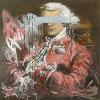- Hem
- Gemenskapen
- Erfaren Traders
- The Best Way to Learn Forex Trading
Advertisement
Edit Your Comment
The Best Way to Learn Forex Trading
Jan 23, 2023 at 06:54
Medlem sedan Nov 06, 2022
37 inlägg
If you've looked into trading foreign exchange (forex) online and feel it could be an opportunity to make money, you may wonder about the best way to get started.
It's important to have an understanding of the markets and methods for forex trading. That way, you can better manage your risk, make winning trades, and set yourself up for success in your new venture.
How to Get Educated About Forex
To trade effectively, it's critical to get a forex education. Spend some time reading up on how forex trading works, making forex trades, active forex trading times, and managing risk, for starters. There are plenty of websites, books, and other resources you can take advantage of to learn more about forex trading.
As you may learn over time, nothing beats experience, and if you want to learn forex trading, experience is the best teacher. When you first start out, you can open a forex demo account and try out some dry-run trading. It will give you a good technical foundation on the mechanics of making forex trades, as well as help you get used to working with a specific trading platform.
Tip
One fundamental thing you may learn through experience—that no amount of research or talking to other traders can teach—is the value of closing your trade and getting out of the market when your reason for getting into a trade is invalidated.
It is very easy for traders to think the market will come back around in their favor when they make a trading mistake. You might be surprised how many traders fall prey to this trap, and they are often upset when the market only presses further against the direction of their original trade.
Think about this famous—and painfully true—statement from John Maynard Keynes about investing: "The market can stay irrational, longer than you can stay solvent." In other words, it does little good to say the market is acting irrationally and that it will come around—meaning in the direction of your trade. That's because extreme moves define capital markets in the first place.
Use a Micro Forex Account
The downfall of learning forex trading with a demo account alone is that you don't get to experience what it's like to have your hard-earned money on the line. Trading instructors often recommend that you open a micro forex trading account, or an account with a variable-trade-size broker, that will allow you to make small trades.
Trading small will allow you to put some money on the line, but it will also allow you to expose yourself to very small losses if you make mistakes or enter into losing trades. This will teach you far more than anything that you can read on a site, book, or forex trading forum, and it gives an entirely new angle to anything that you'll learn while trading on a demo account.
Learn About the Currencies You Trade
To get started, you'll also need to understand what you're trading. New traders tend to jump in and start trading anything that looks like it moves. They may use high leverage and trade randomly in both directions, and this can often lead to the loss of money.
Understanding the currencies that you buy and sell can have a big impact on your success.1 For example, a currency may be bouncing upward after a large fall. This may cause new traders to try to "catch the bottom."
The currency itself may have been falling due to bad employment reports for many months in its country. Would you buy something like that? Probably not. This is an example of why you need to know and understand what you buy and sell.
Currency trading is great because you can use leverage, and there are so many different currency pairs to trade.2 But this doesn't mean that you need to trade them all.
Tip
A better way of doing this is to pick a few currencies that have no relation, and focus on those. Having only a few will make it easy to keep up with economic news for the countries involved. You'll also be able to get a sense of the rhythms of those currencies.
After you've been trading with a small live account for a while, and have a sense of what you're doing, it's OK to deposit more money and increase your amount of trading capital.
Knowing what you're doing boils down to getting rid of your bad habits, understanding the market and trading strategies, and managing your emotions. If you can do those things, you can be successful trading forex.
Manage Risk and Emotions
Managing risk and managing your emotions go hand in hand. When people feel greedy, fearful, or another emotion, this may be when they're more likely to make mistakes with risk. And this is what often causes failure.
When you look at a trading chart, approach it with a logical mindset that only sees the presence or lack of potential for success. It should never be a matter of excitement.
If pulling the trigger on a trade feels emotional in any way, you should re-evaluate why you're doing it and try to regain an objective mindset.
It's important to have an understanding of the markets and methods for forex trading. That way, you can better manage your risk, make winning trades, and set yourself up for success in your new venture.
How to Get Educated About Forex
To trade effectively, it's critical to get a forex education. Spend some time reading up on how forex trading works, making forex trades, active forex trading times, and managing risk, for starters. There are plenty of websites, books, and other resources you can take advantage of to learn more about forex trading.
As you may learn over time, nothing beats experience, and if you want to learn forex trading, experience is the best teacher. When you first start out, you can open a forex demo account and try out some dry-run trading. It will give you a good technical foundation on the mechanics of making forex trades, as well as help you get used to working with a specific trading platform.
Tip
One fundamental thing you may learn through experience—that no amount of research or talking to other traders can teach—is the value of closing your trade and getting out of the market when your reason for getting into a trade is invalidated.
It is very easy for traders to think the market will come back around in their favor when they make a trading mistake. You might be surprised how many traders fall prey to this trap, and they are often upset when the market only presses further against the direction of their original trade.
Think about this famous—and painfully true—statement from John Maynard Keynes about investing: "The market can stay irrational, longer than you can stay solvent." In other words, it does little good to say the market is acting irrationally and that it will come around—meaning in the direction of your trade. That's because extreme moves define capital markets in the first place.
Use a Micro Forex Account
The downfall of learning forex trading with a demo account alone is that you don't get to experience what it's like to have your hard-earned money on the line. Trading instructors often recommend that you open a micro forex trading account, or an account with a variable-trade-size broker, that will allow you to make small trades.
Trading small will allow you to put some money on the line, but it will also allow you to expose yourself to very small losses if you make mistakes or enter into losing trades. This will teach you far more than anything that you can read on a site, book, or forex trading forum, and it gives an entirely new angle to anything that you'll learn while trading on a demo account.
Learn About the Currencies You Trade
To get started, you'll also need to understand what you're trading. New traders tend to jump in and start trading anything that looks like it moves. They may use high leverage and trade randomly in both directions, and this can often lead to the loss of money.
Understanding the currencies that you buy and sell can have a big impact on your success.1 For example, a currency may be bouncing upward after a large fall. This may cause new traders to try to "catch the bottom."
The currency itself may have been falling due to bad employment reports for many months in its country. Would you buy something like that? Probably not. This is an example of why you need to know and understand what you buy and sell.
Currency trading is great because you can use leverage, and there are so many different currency pairs to trade.2 But this doesn't mean that you need to trade them all.
Tip
A better way of doing this is to pick a few currencies that have no relation, and focus on those. Having only a few will make it easy to keep up with economic news for the countries involved. You'll also be able to get a sense of the rhythms of those currencies.
After you've been trading with a small live account for a while, and have a sense of what you're doing, it's OK to deposit more money and increase your amount of trading capital.
Knowing what you're doing boils down to getting rid of your bad habits, understanding the market and trading strategies, and managing your emotions. If you can do those things, you can be successful trading forex.
Manage Risk and Emotions
Managing risk and managing your emotions go hand in hand. When people feel greedy, fearful, or another emotion, this may be when they're more likely to make mistakes with risk. And this is what often causes failure.
When you look at a trading chart, approach it with a logical mindset that only sees the presence or lack of potential for success. It should never be a matter of excitement.
If pulling the trigger on a trade feels emotional in any way, you should re-evaluate why you're doing it and try to regain an objective mindset.
https://t.me/propchallenge
Medlem sedan Jan 19, 2023
1 inlägg
Jan 27, 2023 at 06:48
Medlem sedan Jan 19, 2023
1 inlägg
Hey there! Good post on starting to trade forex. My advice is to take time to learn about it first and read up on how it works and the different methods. Also, try using a demo account to practice and get a feel for it.
Medlem sedan Jan 31, 2023
13 inlägg
Feb 02, 2023 at 08:42
Medlem sedan Jan 31, 2023
13 inlägg
Learning Forex trading can be a challenging and rewarding process, and there is no one-size-fits-all approach. However, some steps that can be helpful in learning Forex trading include:
Education: Start by educating yourself on the basics of Forex trading, including market mechanics, currency pairs, and trading strategies. There are many online resources, books, and courses available to help you get started.
Practice: Open a demo account and practice trading with virtual money to get a feel for the market and to test your strategies.
Analysis: Learn about technical and fundamental analysis and use these tools to inform your trading decisions.
Trading plan: Develop a well-thought-out trading plan, including your goals, risk management strategies, and exit plans for trades.
Mentorship: Consider working with a mentor or joining a trading community to receive guidance, feedback, and support from more experienced traders.
Patience and discipline: Forex trading can be a long-term pursuit and it is important to be patient, disciplined, and to stick to your trading plan.
Remember that learning Forex trading requires time, effort, and dedication. It is also important to be aware of the risks involved and to only trade with funds that you can afford to lose.
Education: Start by educating yourself on the basics of Forex trading, including market mechanics, currency pairs, and trading strategies. There are many online resources, books, and courses available to help you get started.
Practice: Open a demo account and practice trading with virtual money to get a feel for the market and to test your strategies.
Analysis: Learn about technical and fundamental analysis and use these tools to inform your trading decisions.
Trading plan: Develop a well-thought-out trading plan, including your goals, risk management strategies, and exit plans for trades.
Mentorship: Consider working with a mentor or joining a trading community to receive guidance, feedback, and support from more experienced traders.
Patience and discipline: Forex trading can be a long-term pursuit and it is important to be patient, disciplined, and to stick to your trading plan.
Remember that learning Forex trading requires time, effort, and dedication. It is also important to be aware of the risks involved and to only trade with funds that you can afford to lose.
dom perignon
Medlem sedan Mar 31, 2021
222 inlägg
Feb 22, 2023 at 14:26
Medlem sedan Mar 31, 2021
222 inlägg
Practice, practice and practice. Learn trading and practice it on demo. That is the best way to understand market.
Think thrice before opening an order
Oct 01, 2023 at 03:34
(redigerad Oct 01, 2023 at 03:34)
Medlem sedan Sep 30, 2023
1 inlägg
"Trade with funds you can afford to lose."
Says the guy who doesnt take his own advice blowing accounts.
Says the guy who doesnt take his own advice blowing accounts.

*Kommersiell användning och skräppost tolereras inte och kan leda till att kontot avslutas.
Tips: Om du lägger upp en bild/youtube-adress bäddas den automatiskt in i ditt inlägg!
Tips: Skriv @-tecknet för att automatiskt komplettera ett användarnamn som deltar i den här diskussionen.
















